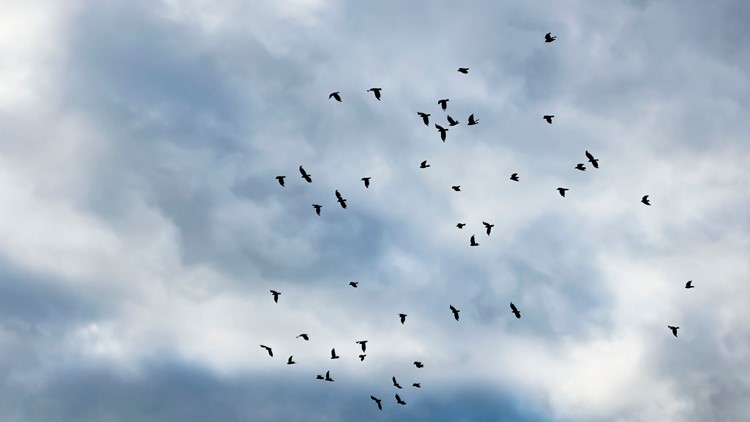BILLINGS, Mo. — The Biden administration on Monday reversed a policy imposed under former President Donald Trump that drastically weakened the government's power to enforce a century-old law that protects most U.S. bird species.
Trump ended criminal prosecutions against companies responsible for bird deaths that could have been prevented.
The move halted enforcement practices under the Migratory Bird Treaty Act in place for decades — resulting most notably in a $100 million settlement by energy company BP after the 2010 Gulf of Mexico oil spill killed about 100,000 birds.
A federal judge in New York in August struck down the Trump administration's legal rationale for changing how the bird treaty was enforced.
But the administration did not abandon its policy and remained adamant that the law had been wielded inappropriately to penalize companies and other entities that kill birds accidentally.
Interior spokesman Tyler Cherry said the Trump policy “overturned decades of bipartisan and international consensus and allowed industry to kill birds with impunity.”
Cherry said in a statement that the agency plans to come up with new standards “that can protect migratory birds and provide certainty to industry.”
Details on the new standards were not immediately made public, but advocacy groups on behalf of the tens of millions of bird watchers in the U.S. have pushed for a permitting system to more closely regulate the hundreds of millions of birds that die annually in collisions with wind turbines, after landing in oil pits and from other industrial causes.
More than 1,000 North American bird species are covered by the law — from fast-flying peregrine falcon to tiny songbirds and more than 20 owl species. Non-native species and some game birds, like wild turkeys, are not on the list.
Industry groups including the American Petroleum Institute had supported the Trump rule but said they are willing to work with the Biden administration on environmental issues.
Besides the BP case, hundreds of enforcement cases — targeting utilities, oil companies and wind energy developers — resulted in criminal fines and civil penalties totaling $5.8 million between 2010 and 2018.
U.S. Fish and Wildlife Service officials have said relatively few of the cases end in criminal prosecutions because most companies are willing to take measures to address hazards that their operations may pose to birds.
Industry and other human activities — from oil pits and wind turbines, to vehicle strikes and glass building collisions — kill an estimated 460 million to 1.4 billion birds annually, out of an overall 7.2 billion birds in North America, according to the U.S. Fish and Wildlife Service and recent studies. Researchers have said cats in the U.S. kill the most birds — more than 2 billion a year.
Virginia’s Democratic governor blamed the Trump administration decision to end enforcement of the migratory bird law for the 2019 destruction of a nesting ground for 25,000 shorebirds to make way for a road and tunnel.
The 1918 migratory bird treaty came after many U.S. bird populations had been decimated by hunting and poaching — much of it for feathers for women’s hats.





